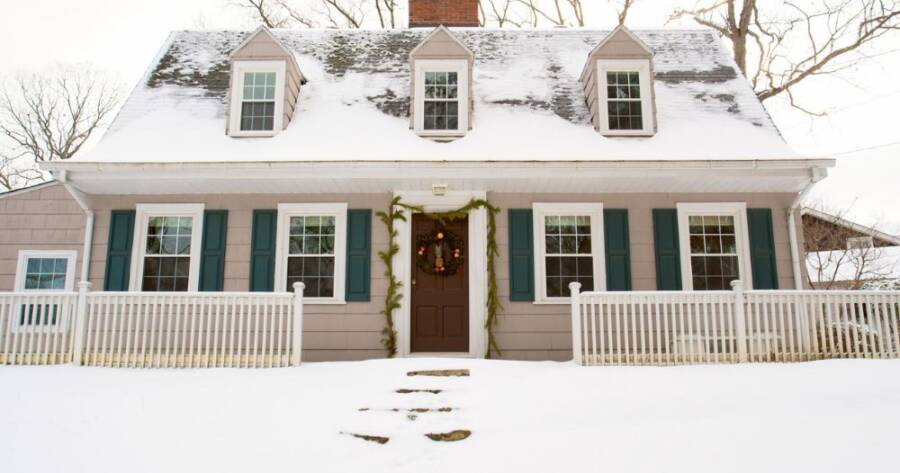Heating your home can be a financial strain. In fact, HelpAdvisor says 26% of Americans skipped or cut back on basics like food and medicine to pay an energy bill in the past year. And that’s before the steep price increases expected this winter.
“No matter how you heat your home,” CNN says, “the cost of that heat is likely to soar.” The Energy Information Administration estimates a price increase of 28% for natural gas, 27% for heating oil, and 10% for electric heat. But you can reduce the cost.
Let’s take a closer look at why heating costs are surging — hint: it’s not just inflation — and what to do about it. Keep reading to learn more and discover seven ways to cut the price of your heating bill without freezing this winter.
Why Heating Costs Are Expected To Skyrocket
A few factors are driving the price jumps. Firstly, Time says Russia’s invasion of Ukraine is the primary cause because it’s straining global energy supplies. Secondly, the source explains natural gas reserves are depleted after air conditioners had to keep up with a super hot summer.
Thirdly, the Energy Information Administration says colder-than-usual winter temps are expected to increase demand. And finally, inflation doesn’t help matters. As a result, NBC News says Americans are facing “the biggest increase in their home heating bills in more than 10 years.”
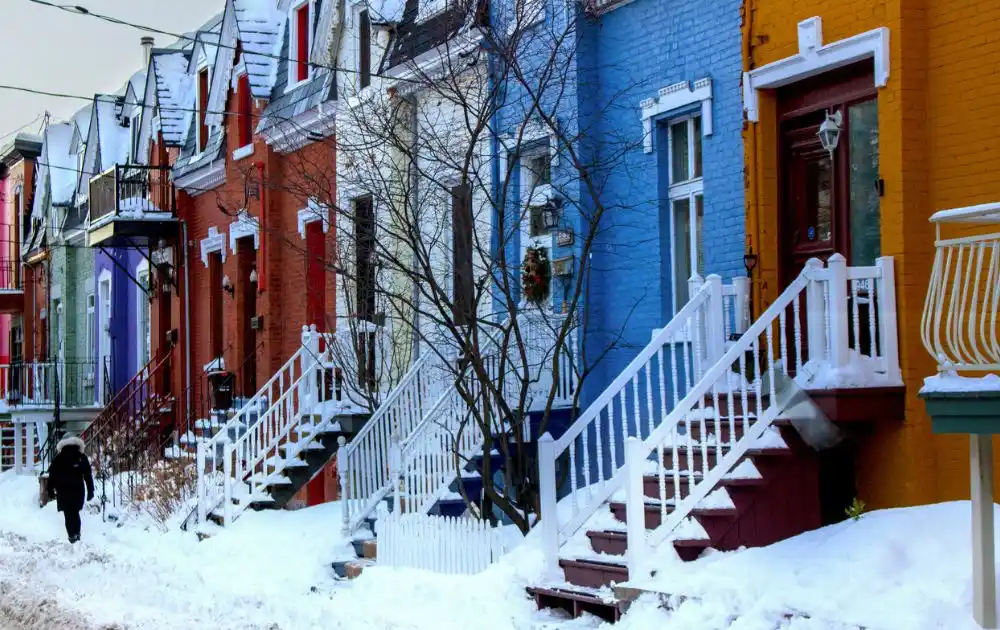 Getty
GettyHow High Are Heating Bills Expected to Jump
Compared to last year, the National Energy Assistance Directors Association estimates that American households will pay $22 billion more to heat their homes this winter. Some utility companies have already told customers about upcoming price hikes, so you may have some idea of how much your bill is expected to soar.
For example, The Daily Gazette says National Grid predicts upstate New York households will “pay $263 more than last winter” for heating. While Americans will certainly feel the squeeze, Time says things are even bleaker across the pond — U.K residents, for instance, are facing “an 80% spike in their energy bills.”
 Shutterstock
ShutterstockWays To Lower Your Heating Bill This Winter
Now that you have a better understanding of the factors pushing heating costs up, you’re probably wondering what you can do about it. Even though the causes are outside of your control, you can take measures to keep the cost of your heating bill in check.
You don’t have to go broke to keep your house warm this winter. Here are seven ways to save energy and spend less to heat your home as temperatures dip and heating costs climb. Let’s dig into the details and see how you can take matters into your own hands.
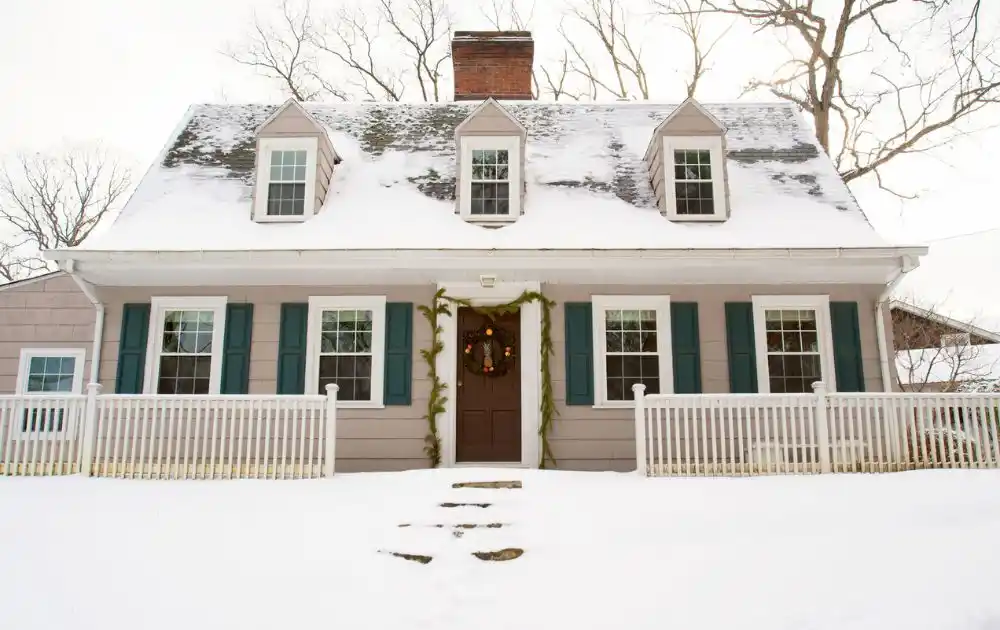 Getty
GettyAdjust Your Thermostat
Sure, this one probably seems obvious. But you might not realize how much small adjustments to your thermostat can lower your bill. The Department of Energy says you can save up to 10% by “turning your thermostat back 7°-10°F for 8 hours a day from its normal setting.”
So, what base temperature is ideal? The source recommends setting your thermostat to 68°F while you’re awake and at home. Then, lower the temperature when you go to sleep or leave your house. Consider using a programmable thermostat instead of a manual thermostat.
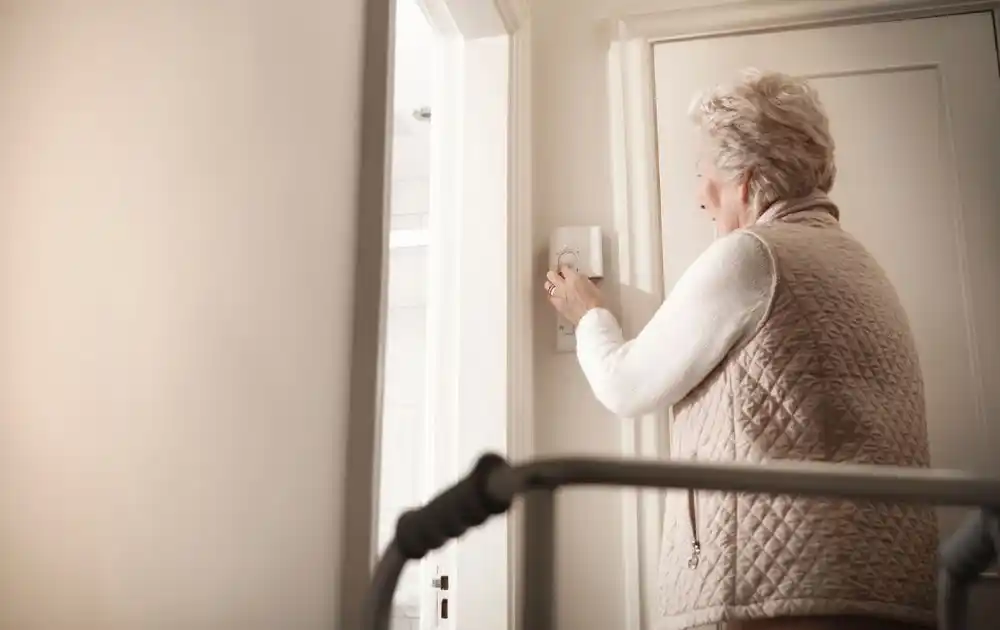
Turn On Ceiling Fans
Now this one, on the other hand, might seem counterintuitive. But it’s true — ceiling fans can help keep the cost of your heating bill down. That’s because they can “create an updraft and circulate warm air around the room,” according to the Hunter Fan Company.
However, you’ll want to change the direction your ceiling fans spin. The source says ceiling fans should move counterclockwise in the warmer months to create a downdraft. Then when temps dip, reverse the direction clockwise and make sure they’re on the lowest setting.
 Getty
GettyShut Doors When You Leave Rooms
The importance of turning off the lights when you leave a room may have been instilled into you growing up. But you might not have been told to shut the door behind you. However, it’s a good habit to develop if you want to lower your heating bill.
As Ramsey Solutions explains, “the heat will hang out in the room, so your HVAC system won’t have to keep pumping out warm air.” The next time you’re the last person to leave a room, turn off the lights and shut the door. Both help your bottom line.
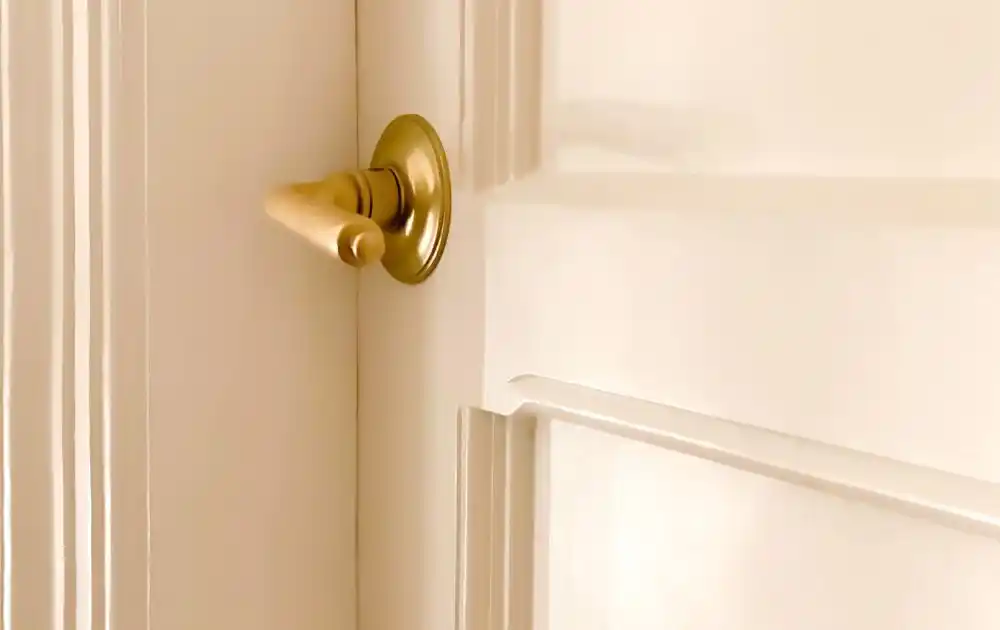 Getty
GettyStrategically Open and Close Curtains
Opening and closing curtains at certain times can also make a difference. For instance, Consumer Reports suggests “opening curtains on any south-facing windows during the day to allow the sunlight to warm your home.”
Then close those curtains when the sun sets. That way, your curtains can act as insulation and help trap the heat. The Department of Energy says about 30% of a home’s heating loss is through the windows, so closing curtains at night makes sense.
 Getty
GettyLook Into Energy Assistance Programs
The American Council for an Energy-Efficient Economy says that 40% of low-income households spend more than 10% of their income on energy bills. And that was before the predicted price hikes this winter. If paying your heating bill is a financial hardship, then you may be able to get help from energy assistance programs.
The Low Income Home Energy Assistance Program (LIHEAP) is one of the primary programs to look into for support. Your local community also might have charities and non-profits that can help cover heating expenses. Additionally, your utility company may offer payment plans that can help relieve some pressure.
 Getty
GettyFind And Seal Up Any Air Leaks
As previously mentioned, windows can be a major source of heat loss. If you can feel a draft, then use weather stripping, caulk, or expandable foam to fill any gaps. Also, check your doors for drafts and fill in the gaps you find.
Consumer Reports suggests “turning on all of your home’s exhaust fans and holding an incense stick near windows, doors, and electrical outlets.” When the smoke blows sideways, the source says there’s an air leak you need to plug.
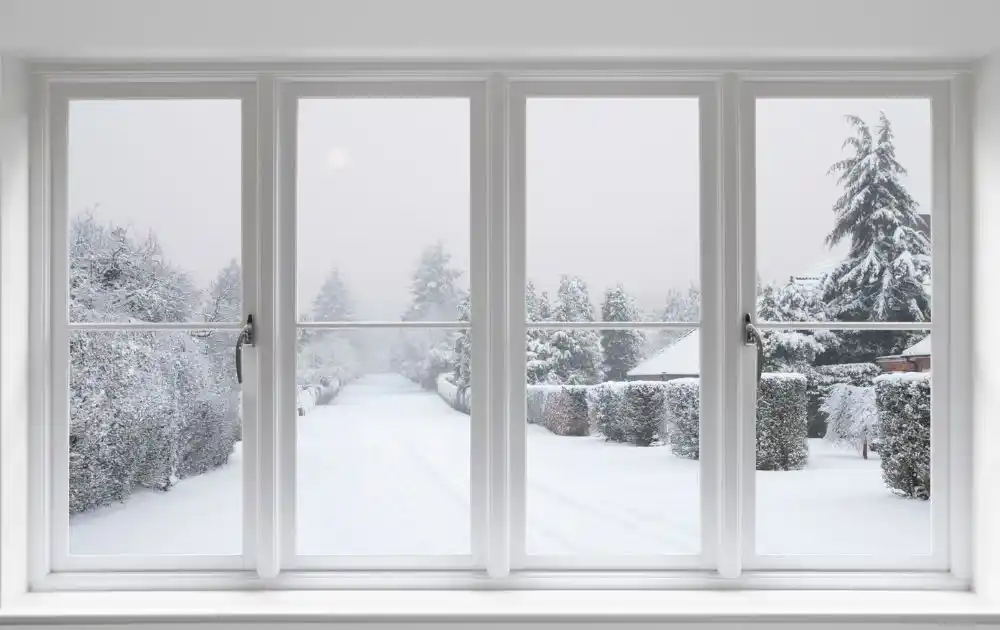 Getty
GettyConsistently Maintain Your Heating Systems
Finally, it’s a good idea to get your heating system serviced by a professional every year. They can tune up your furnace’s burners and exhaust vents to make sure your heating system is operating as efficiently as possible.
In addition to getting an annual furnace inspection, it’s important to remember to regularly replace furnace filters. GEICO Living says, “Clogged material can force your unit to work harder, raising energy costs.” So, giving your furnace a little TLC can help keep your heating bill in check.
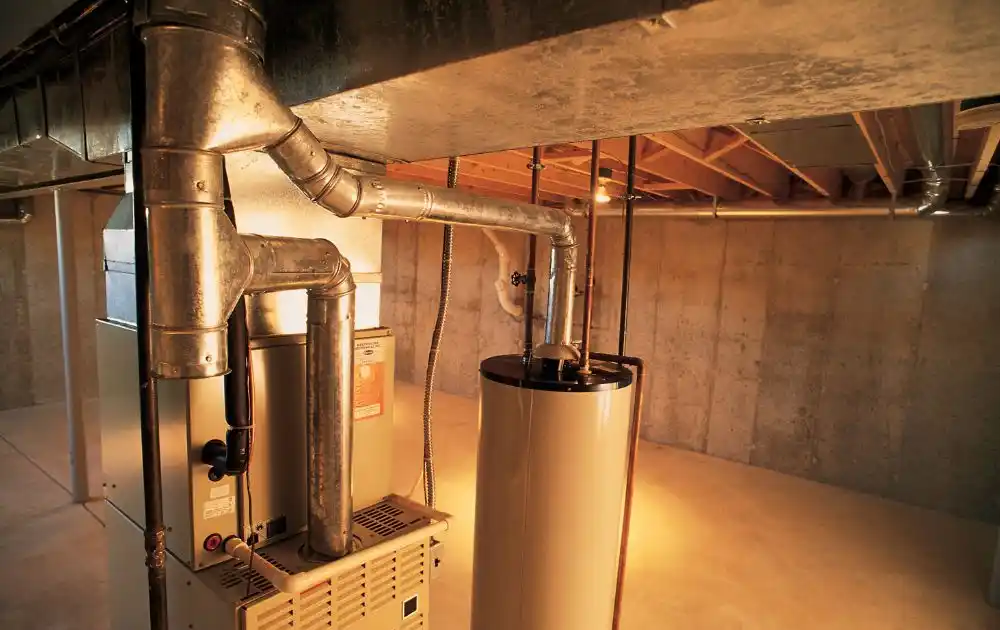 Getty
Getty